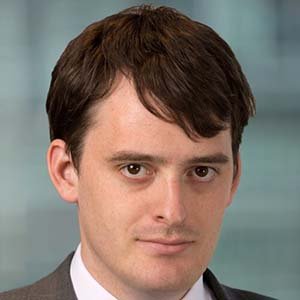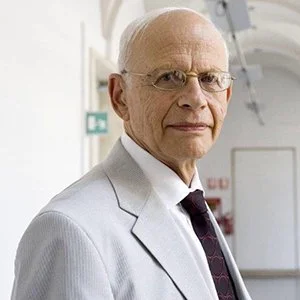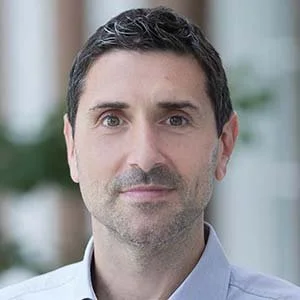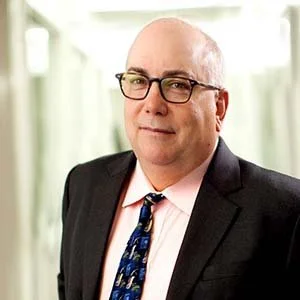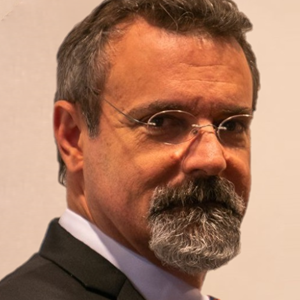Let’s learn just a bit more about David C. Baker before we get into the show notes…
David C Baker grew up with a tribe of Mayan Indians in a remote village in the highlands of Guatemala. He's an author, speaker and advisor to entrepreneurial experts. Also a helicopter and airplane pilot, an avid photographer and has taught high performance motorcycle racing. He owned a marketing communications firm for 6 years, then started a management consulting firm focused on helping entrepreneurial experts make better business decisions through his writing, speaking, and advising. He has written five well received books, the third one, Managing Right for the First Time, recently being named by Inc. Magazine as one of the Top Ten Books on Management that Entrepreneurs Should Read.
Ed’s Questions: Segment One
Welcome to The Soul of Enterprise: Business in the Knowledge Economy, sponsored by Sage, transforming the way people think and work so their organizations can thrive. I'm Ed Kless with my friend and co-host, Ron Baker, and folks on today's show, we are pleased to have our interview with David C. Baker. How's it going, Ron?
Ron
It's going good. This has been a weird week, but I'm really looking forward to our conversation with David.
Ed
Absolutely. It has been a weird week. We'll perhaps get into that on our bonus episode later. But let's get to our guest right away. David C. Baker was born in Michigan, but lived in Guatemala with a tribe of Mayans until he was 18 years old. He spent six years in graduate school earning advanced degrees in ancient languages in theology, but wishes he had a degree in anthropology. He's an author, speaker and advisor to entrepreneurial experts. And he owned a marketing communications firm for six years and then started a management consulting firm focused on helping entrepreneurial experts make their business decisions through his writing, speaking and advising. He's the author of three rock bench titles, Managing (Right) for the First Time, Financial Management of a Marketing Firm, and The Business of Expertise: How Entrepreneurial Experts Convert Insight to Impact + Wealth. Welcome to The Soul of Enterprise, David C. Baker.
Well, we're happy to have you. So my first question is Mayans, fascinating. Talk to me.
Which, of course, probably led to your then getting advanced degrees in ancient languages and theology as part of the tie-in. I could see that would give you a push in that direction. But then you do say, in one of the bios that I read, and I worked it into the bio, that you preferred you would have had a degree in anthropology. And I think you probably know Rory Sutherland has called marketing the modern equivalent of anthropology in the current day, marketers are anthropologists on the current set of human beings that are around. So why did you want anthropology after all that?
Which leads me to this next question. I'm really curious as to your thoughts on this. And this is kind of a running theme, or question, that Ron and I have bounced back and forth on for quite some time. The word fair, and we often use in the business context of a “fair price.” Fair is an Anglo Saxon word, it only exists in Anglo Saxon type languages. Because if you translate fair to Spanish or French, it gets translated as “just” and then if you translate that word back to English, you would never translate it back to fair, you would translate it as “just,” that would be the word that you would use. And it's amazing to me how the concept of fair, which the opposite by the way in the original word is foul, and we would never say, “Well, that was a foul price.” And so in your in your experience with understanding languages, it's amazing to me how languages have concepts like that, that the concept doesn't even translate one to the other.
And that's what I wanted to lead to and ask you about this, because I think there's an analogy to business in that these different areas of expertise, and of course in your book, have different languages in a sense that are used, and some of them don't translate well, one to the other. So I think there is a language of marketing, a language of sales, a language of finance. And oftentimes, I think we're talking past each other linguistically, even though we're talking the same English, it's different concepts come into our mind when we talk about things like price, cost, value, they sometimes mean different things to different people when you say them, right?
I think it was Plato, all wisdom begins with the definition of words. We can't build wisdom unless we agree on what some term means. And I think oftentimes, a lot of people are talking past one another when we do say things like price, value, specifically those words in business. So curious as to when you hear value-based pricing, what does that mean to you? Why is that a struggle for you?
That's why I think Peter Drucker was great at, asking some of those very basic questions that you would think okay, what's the purpose of your business, sell what your customers buy. Well, duh, no kidding, but it's amazing how many people don't actually sell what their customers buy. It's really quite incredible. I've got of just a few minutes with you, so to pick on this value conversation, I agree with you that oftentimes people who have espoused some of the concepts that Ron and I talk about have done it and come about it more from a manipulative standpoint, I will not deny that stamp at all, which is why I always go back to the work of Mohan Khalsa and his book—and to me wrote the definitive book on the value conversation—which is Let's Get Real, or Let's Not Play. The whole concept is exactly what you said, we're going to have a real, authentic conversation, and I am going on a value quest with you in this conversation to try to find out if there's enough there there, as you know, the politicians once said, to see if it's worth us doing business at all, and I'll be the first one to say, I don't think we should do anything with you.
Interesting, well that's unfortunate, because I think one of the things that I found is that when people are really good at the value conversation, you do have that experience of being well-listened to. That's one of the things that people will say, and I will agree. I think Margaret Wheatley, a previous guest on this show [Episode #308], in one of her books, which is on great questions, about asking great questions. She does ask that exact question. When was the last time you experienced good listening? And that's a very challenging,
Yeah, it really is. And it changes the way we go about doing our business on a regular basis. Well look at this, we're up against our first break already.
Ron’s Questions: Segment Two
Welcome back, everybody, we're here with David Baker, and he's the author of The Business of Expertise: How Entrepreneurial Experts Convert Insight to Impact + Wealth, published in 2017. David, this was a great book, I really got a lot out of it. I love how you talk about positioning, but on the wealth + making an impact in your subtitle, I just want to ask you about this from a knowledge worker perspective. When you look at doctors, or lawyers, or even advertising folks. They joined the profession or the industry for some reason, they wanted to help people, they wanted to make an impact, whatever. And then they get in there, and they spend half their time doing paperwork, like how doctors feel they're overwhelmed with too many patients, and they don't burn out—they rust out. What's your reaction to that?
We have a saying around here: growth for the sake of growth is the ideology of the cancer cell not of a profitable, sustainable business. I love how you say it's not about revenue, or growth, it's about impact. You also wrote this, and I really want you to explain this: “Expertise (or insight) is based on focus, which is based on positioning. Now, I'm going to ask you later about vertical and horizontal positioning. But just unpack that why “expertise, or insight, is based on focus, which is based on positioning”?
And I love that because on the positioning end of it, it also gives you the ability to say no easier and I love when you say “Your only real control is to withhold your expertise.” I mean, he who says no has the power.
There's nothing more liberating than being able, and willing, to say no. But we learn that so late, or a lot of us do. I wish I would have known that in my 20s.
By the way, David, my favorite way to say no, is tell somebody, “I'd love to, but I don't want to.” And you'll get a really weird look, and they'll have to process that for a minute. But it's a very nice way to say no. Great conversation you were having with Ed about pricing. And you say pricing to you is a leading indicator, as a consultant you like to go in, take a look at their pricing, it gives you a sense of their confidence level, do they offer free consultations, you have all of these different things that you look at. Why do you think so many firms have a problem with pricing?
I'd rather have no business than bad business, or where I have to compromise my principles. I love the way you say—and I am a big fan of Dr. House—and the second law of medicine, which is prescription without diagnosis is malpractice. And you say, and I love this—and I am stealing this by the way—if you don't diagnose, or even prescribe, you're just the pharmacy. I love that. And it kind of leads to, if you kind of blow that up and go even higher, we have a saying that, and you say don't confuse expertise with implementation. I have a saying, good ideas are more valuable than the mere execution of them. In other words, to prescribe with the wrong diagnosis, there's no good way to implement a bad idea. I don't think good ideas are everywhere. I think they're rare. Otherwise, we wouldn't get the remake of The Dukes of Hazzard and Bewitched, and all this crap, all these sequels. But just wanted your reaction to that.
I love how you have the strategy room and the implementation room, and how the strategy room should slowly encroach, and grow bigger over execution. I learned this from economists, I know it's a very counterintuitive idea, but countries that come up with better ideas, and more ideas, have a higher standard of living than those countries that merely execute on those ideas. So I rather live in the country that comes up with the concept of the iPhone, rather than the country that assembles it. The other thing, and I love this, and I've only got about a minute, but maybe Ed can get into this, you say there's a temptation to match capacity to opportunity, which is kind of that whole growth for the sake of growth. You say the right size capacity is slightly smaller than the amount of opportunity within reach. That's brilliant, by the way, I love that.
And if you never have spare capacity, not only can’t you get better opportunities, or drive more opportunities for existing customers, but you're going to rust out your people if you put them on this treadmill, especially knowledge workers.
Awesome. Well, David, this has been great.
Ed’s Questions: Segment Three
And we are back with the author of The Business of Expertise: How Entrepreneurial Experts Convert Insight to Impact + Wealth, David C. Baker. And David, would you walk us through a typical day for you? And if you don't get the reference there, that is the opening line of the two Bobs in the classic scene in the movie Office Space. So I want to I want you to talk to me a little bit about the Two Bob's podcast, which I assume is based on that great scene in that movie.
Probably the only more famous scene than that is the PC load letter, when they take the baseball bat to the printer. [The movie was] shot in North Texas, by the way. A lot of those interiors were shot in North Texas. But David, back to the book. So I'm going to quote for from the book here. And this, I think, alludes to the conversation that you were having earlier with Ron. You said, “If I could reach inside my unconfident clients and raise their confidence level, we would move on and solve the next challenge for them. Truth be told, I often thought more highly of their abilities than they did themselves.” Why do so many professional organizations actually suffer from, as crazy as this seems, self-esteem issues?
As one of our colleagues of VeraSage colleagues [Dan Morris] said when he was shifting his last customer over from billing by the hour to a fixed price agreement, he said to him, “I'm too old and too talented to continue to charge you by the hour. And I think that's part of it. But I also do think that it relates back to the conversation we were having earlier, which is the professional tends to focus on “It only took me 15 minutes.” The reality is no, it took you your whole lifetime to get to that 15 minutes. And then you're not selling expertise. And I was so much in agreement with what you were saying about them not being service workers. That's one thing I wish I could beat out of them, that you are not in a service firm, but in a knowledge firm, what we like to call access to, or transfer of, knowledge. That's what you're really selling.
Alan Weiss tells a story about this whole confidence thing. When he was a junior implementer for a larger consulting firm, and after the guy gave the price out to this bank manager, he would put a cigar in his mouth. And one day Alan Weiss screwed up the courage and asked him, “So Bernie, what's with the cigar?” He said, “I need the cigar, because if I don't put the cigar in my mouth I start to giggle.” We've only got about four minutes left, and you started this conversation with Ron, and I thought it was really interesting. You talk about the six different things about positioning, five are in one chapter and then you dedicated an entire chapter, chapter 10, to how positioning is built on your expertise and not your implementation. You started to talk a little bit about that with Ron. Unpack that with the last four minutes or so that we have left to talk here.
That's so great. Our friend, Tim Williams, who I know you know, talks about the difference between logic work and magic work. I think they are very similar to what you're talking about. Charge a lot for the magic work, and you can even “give away” the logic work, the stuff that's got to be done no matter what, say that's free. I mean, it's not, because the value is really on that magic work.
That’s right. None of us wants to be charged $150 an hour to resize a banner ad. We do not want that at all. Well, David, this has been great. Ron's going to take you home in the fourth segment, but I just want to thank you for appearing on the show today. We hope you'll come back and maybe talk to us some more. But right now, we want a word from our sponsors, and my employer, Sage.
Ron’s Questions: Segment Four
Welcome back, everybody. We're here with David Baker, the author of The Business of Expertise: How Entrepreneurial Experts Convert Insight to Impact + Wealth. And David, we've only got about nine minutes, and you could probably use the whole thing [on this one topic]. And I just want to tell people, please, please, please read David's book, because your discussion on vertical versus horizontal positioning is brilliant. And there's a lot in there, and firms need to go through every portion of it. But you also say, “Most well positioned experts have vertical positioning.” So give me your explanation. How do you explain vertical versus horizontal positioning?
And you say that this needs to be reevaluated at least every five years or so, maybe 10 ideally. Explain that?
I know it's in your contract with Blair to give him a shout out. And I hope we've fulfilled that. Well, one more shout out to Blair. He says, “Positioning is an exercise in irrelevance.” Explain that?
And I love this, too. You have a really good way to explain how, when you're in a vertical positioning framework, it's so much easier to find prospects, because essentially, you can buy a list. And the other thing you said is, when people change jobs, they usually take you along with them, which is a fantastic point.
Yes, that's a fantastic acid test, can you buy a list. Then you say this, and I love this too, and I know this goes back to our conversation about growth for the sake of growth, but you say, “Drop the irrational fear that to keep a customer you have to meet all of their needs.”
I also love this, you said, “Quit protecting what you learned in the past and learn new things now.” I have this philosophy that I should give away my intellectual capital. That way, I have to replenish it to keep at the cutting edge. To me, it's a lagging indicator that your ideas are stale when you start copywriting your own jargon.
Excellent. Well, David, thank you so much for appearing on The Soul of Enterprise. We’ve got to bring you back and talk about some of your other books. And Ed, what’s coming up for next week?
Ed
Next week, Ron, we are going to talk about a little book that we found called on behavioral economics: Influences and Irrationalities of the Human Mind, by none other than our friend Rory Sutherland.
Ron
I’m looking forward to that, see you in 167 hours.














